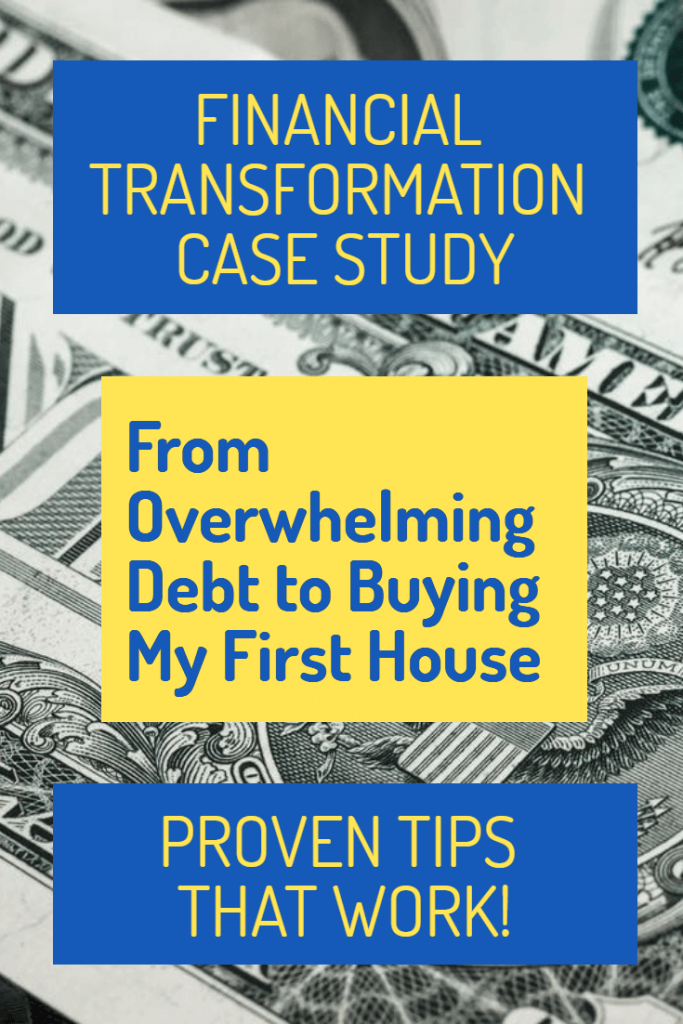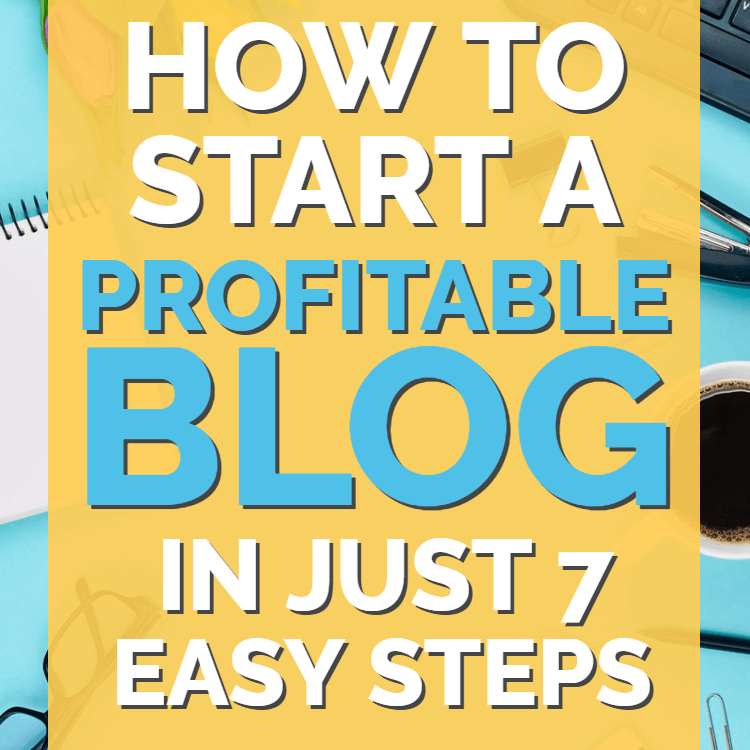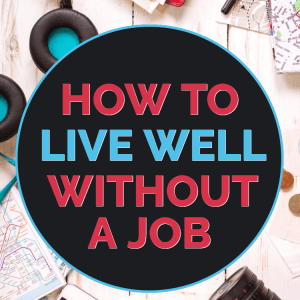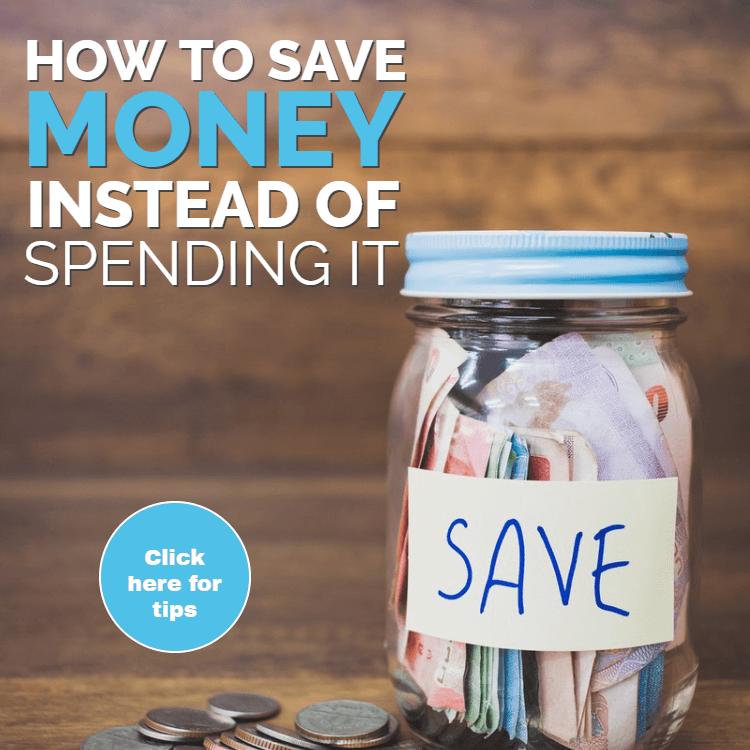Contents
I started this blog in the summer of 2013, when I was up to my eyeballs in debt.
At the time I wasn’t just struggling to keep up with my minimum payments – I was actually failing.
I had gotten to the point of just ignoring phone calls from debt collectors because I just didn’t have anything to offer them. I didn’t even dare check my credit rating, but it would have been shocking.
In April of 2019 I bought my very first house.
A lot can change in 6 years.
I started this site partly to keep me accountable and motivated, and partly to share my story with others going through similar tough times. What tricks really worked for spending less, paying off debt and taking control of your financial future?
Now as I type these words I’m debt free (besides the mortgage, obviously), have savings in the bank, investment accounts and a pension. While I certainly wouldn’t say I’ve won the game of money just yet, the contrast between 2013 and 2019 is unreal.
I’ll be writing more about the practicalities of buying a house in the UK over the coming weeks, but for now I just want to stop and look back at the major changes that has permitted this financial transformation.
If you’re struggling with money right now then this article is for you.
If you don’t earn enough.
If you’re intimidated by your debt.
If you believe that there’s no way out of your financial situation then my own experience shows that change is certainly possible.
These methods work – when you diligently apply them over a long-enough period of time.
And while progress can feel incredibly slow – especially in the early days – all these changes compound to change things beyond all recognition if you stick with it.
So what were the factors that I believe had the greatest impact on this change of fortune?
Be Willing to Make Sweeping Lifestyle Changes
Many of us live in situations that make financial control challenging.
Perhaps you live in an area with a high cost of living (HCOL) where you’re paying over the odds for rent or a mortgage.
Maybe you live in an area where salaries are particularly low.
Or perhaps you work in an industry where the quality of life is poor, or has a low maximum salary.
All of these things can look like unbeatable challenges. So many people simply accept that “it is what it is” and bumble along never really making any progress.
And while change can be uncomfortable for many of us – scary even – it’s far from impossible. Especially if you’re lucky enough to live in a developed Western country with all the possibilities this brings.
So don’t be afraid to think big to make significant changes possible.
In the time that I’ve been writing on this blog I’ve taken on jobs I didn’t like simply because they paid more money and allowed me to make some financial progress.
I’ve used this disposable income to pay down debt, creating opportunities for the future.
I’ve jumped entirely from a career in retail to one in marketing, with more sociable hours and more generous salaries.
I’ve also moved halfway across the country, away from friends and acquaintances, to an area with a lower cost of living.
I moved here with nothing but what I could fit in my car. I turned up with nowhere to live, and carrying just my computer and a suitcase of clothes. All I really had was a contract for a new job.
So – yes – change can be scary. But it can also transform your life if you’re willing to take a chance.
Cut Spending to the Bone
Most of us spend far more than we really need to. Right now you may be thinking that this isn’t you – but I’d be surprised if we all couldn’t find at least a few ways to spend less.
I still laugh about people choosing to have a “no spend week” to save money. Personally I had a no spend few years.
No vacations.
No new clothes.
No eating out.
Cutting my own hair.
Growing my own vegetables from seeds other people had given me.
Apart from the absolute basics required to keep a roof over I head I spent virtually nothing.
Was it fun? Not really.
Did it help? Yes – enormously. I was able to use that extra money I wasn’t spending to pay off debt and save for the future.
Was it uncomfortable? At first spending nothing feels very alien indeed. But here’s the funny thing – we humans are surprisingly adaptable. Soon enough it becomes comfortable.
In fact you may even reach the point – as I did – where the thought of all that money you used to spend almost makes you feel sick.
Even more, when you start to see your financial situation changing as a result of cutting your spending to the bone then you’ll become far more motivated to go the course.
Review Your Spending Monthly
In the age of direct debits, bank cards, Apple Pay, Paypal and more it’s easy to lose control of your money. After all, we spend it in so many ways – and so easily – that many of us can burn through huge chunks of money without even realizing it.
One day you look at your bank account and wonder where it all went.
Even to this day I carry out a regular spending review. Every month. Like clockwork.
I gather bank statements together and assess exactly where my money went over the previous weeks.
I look for anything that has got out of control. For example, my mobile phone contract ended recently. Without informing me the network decided to ramp up my tariff to their “default” – which cost more than twice what I had been paying. I caught it straight away thanks to my spending audits. I then requested a refund of the difference they’d taken without my agreement and transferred away to a cheaper network.
Many people wouldn’t have noticed this for months – if at all – and would have spent huge amounts of money unnecessarily.
I also question my routine expenses to see if they can be reduced or even eliminated entirely.
Ask what you could do to spend less on groceries, car insurance or on Christmas gifts.
Could you use a cashback website or credit card?
Could you join a loyalty scheme to save up reward points?
Could you switch to another provider and save?
Never stand still. Never assume there’s no more optimization to be done. Each month find ways to improve. You’ll be amazed just how many ways there are to save money when you really work at it.
Accept Pain Now For a Better Future
Making significant changes to your financial situation can involve a fair degree of pain.
Perhaps you need to take on a second job or work longer hours.
Maybe you need to cancel that expensive TV package you love or stop taking exotic foreign trips.
Perhaps that’s why so many people are averse to making these changes.
After all, when you’re broke or struggling to pay back debt, the last thing you really want to do is to pile on even more discomfort.
However remember that this pain is only temporary. And the positive impact on your life can last an awful lot longer. Sure, I spent four years working in a job I absolutely hated, but it allowed me to become debt free and made my current lifestyle possible.
So if you’re dedicated to improving your financial situation accept that you’re probably going to have to do some things you really don’t want to.
Just suck it up and push through the pain.
Soon enough it will have passed and the clouds will clear.
Automate Your Finances
While I believe in routinely reviewing your income and spending to maintain a healthy balance, I am also a huge fan of automating many of the more boring aspects of personal finance. There are two big benefits here in my opinion.
Firstly, automating your bills ensures you’re never late making a payment. This helps to build your credit, while avoiding interest and late-payment fees being added.
Secondly, automating your savings and investments ensures it actually happens. It’s so tempting to save whatever is left at the end of the month – which is zero for many of us. So save first – what many experts call “Paying Yourself First” – then live on the remainder.
Utilizing these automation rules, combined with a regular spending audit, will allow you to make continual progress with the minimum investment of time.
Learn to Enjoy the Journey Not the Destination
If you’re deep in debt right now then I’m sure you can imagine just how great it feels to finally send in that last payment. Done! The freedom!
Here’s a funny thing though; many people don’t really feel like that when their balance hits zero. Becoming debt free can actually be quite anti-climatic. The journey was actually more rewarding than the final destination.
Here’s another consideration too – when you focus only on a big, lofty goal it is very easy to become intimidated. So intimidated, in fact, that you never even bother starting.
Imagine you’re trying to get in shape ready for the summer. If you’ve got a few pounds to lose it’s easy enough to eat more salad and go for the odd run. Within a few weeks you’d have hit your goal.
But what if you needed to lose 100lbs of weight or maybe even more? That means you’ve got to remain disciplined for months, even years, to reach your goal weight. Why bother?
Focusing on the journey – on behaviours that will help you inevitably reach those goals – allows you to focus far more on the short term. It breaks down a big, audacious plan into bite-size chunks.
And as they say: it’s possible to eat an elephant if you take it a bite at a time.











Add comment